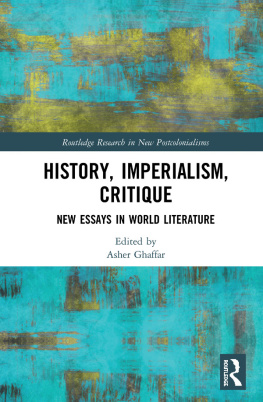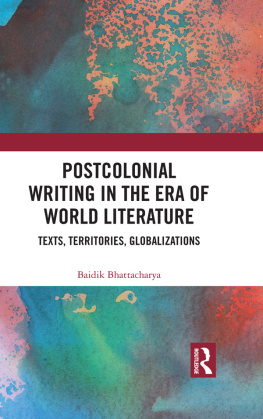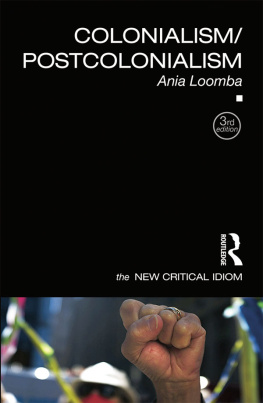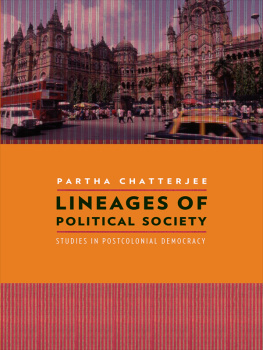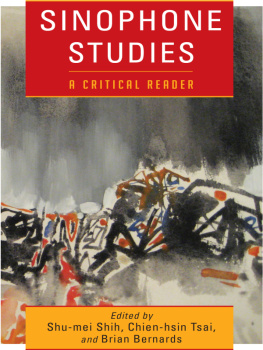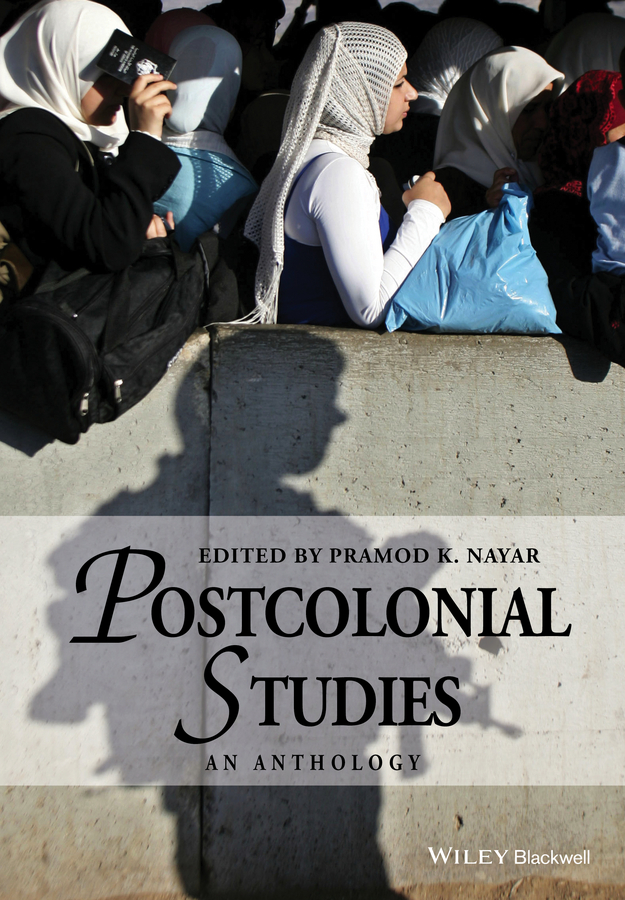
Table of Contents
List of Tables
- Chapter 07
- Chapter 36
Guide
Pages
Also available:
The Postcolonial Studies Dictionary
Pramod K. Nayar
Colonial Voices: The Discourses of Empire
Pramod K. Nayar
Empire, Colony, Postcolony
Robert J. C. Young
Postcolonialism: An Historical Introduction
Robert J. C. Young
The Idea of English Ethnicity
Robert J. C. Young
A Concise Companion to Postcolonial Literature
Edited by Shirley Chew and David Richards
Terror and the Postcolonial: A Concise Companion
Edited by Elleke Boehmer and Stephen Morton
A Companion to Comparative Literature
Edited by Ali Behdad and Dominic Thomas
A Companion to Translation Studies
Edited by Sandra Bermann and Catherine Porter
How to Read World Literature
David Damrosch
World Literature in Theory
Edited by David Damrosch
A Said Dictionary
R. Radhakrishnan
Gayatri Chakravorty Spivak: In Other Words
Sangeeta Ray
Other Asias
Gayatri Chakravorty Spivak
Postcolonial Studies
An Anthology
EDITED BY PRAMOD K. NAYAR
This edition first published 2016
Editorial material and organization 2016 John Wiley & Sons Ltd
Registered Office
John Wiley & Sons, Ltd, The Atrium, Southern Gate, Chichester, West Sussex, PO19 8SQ, UK
Editorial Offices
350 Main Street, Malden, MA 02148-5020, USA
9600 Garsington Road, Oxford, OX4 2DQ, UK
The Atrium, Southern Gate, Chichester, West Sussex, PO19 8SQ, UK
For details of our global editorial offices, for customer services, and for information about how to apply for permission to reuse the copyright material in this book please see our website at www.wiley.com/wiley-blackwell.
The right of Pramod K. Nayar to be identified as the author of the editorial material in this work has been asserted in accordance with the UK Copyright, Designs and Patents Act 1988.
All rights reserved. No part of this publication may be reproduced, stored in a retrieval system, or transmitted, in any form or by any means, electronic, mechanical, photocopying, recording or otherwise, except as permitted by the UK Copyright, Designs and Patents Act 1988, without the prior permission of the publisher.
Wiley also publishes its books in a variety of electronic formats. Some content that appears in print may not be available in electronic books.
Designations used by companies to distinguish their products are often claimed as trademarks. All brand names and product names used in this book are trade names, service marks, trademarks or registered trademarks of their respective owners. The publisher is not associated with any product or vendor mentioned in this book.
Limit of Liability/Disclaimer of Warranty: While the publisher and author have used their best efforts in preparing this book, they make no representations or warranties with respect to the accuracy or completeness of the contents of this book and specifically disclaim any implied warranties of merchantability or fitness for a particular purpose. It is sold on the understanding that the publisher is not engaged in rendering professional services and neither the publisher nor the author shall be liable for damages arising herefrom. If professional advice or other expert assistance is required, the services of a competent professional should be sought.
Library of Congress Cataloging-in-Publication Data
Postcolonial studies : an anthology / edited by Pramod K. Nayar.
pages cm
Includes bibliographical references and index.
ISBN 978-1-118-78099-2 (cloth) ISBN 978-1-118-78100-5 (pbk.) 1.Postcolonialism in literature. 2.Postcolonialism. 3.Globalization in literature. 4.Globalization. 5.Transnationalism in literature. 6.Transnationalism.
I.Nayar, Pramod K., editor.
PN56.P555P674 2016
809.93358dc23
2015019934
A catalogue record for this book is available from the British Library.
Cover image: Hawara checkpoint, West Bank. Photo Loay Abu Haykel / Reuters / Corbis
Preface
This anthology is determinedly interdisciplinary in nature. Scholars from anthropology, international relations, history, publishing, sociology, gender studies, philosophy of science, film and media studies, political science, and the postcolonial ubiquitous literary studies add the heft of methodological diversity to the field we have come to call postcolonial studies. The aim here is to not only open up these many routes into the postcolonial but also to foreground how different disciplines bring their own politics, whether about cultural hybridity or political economy, into the analyses.
While traditional fields of analysis such as literature, identity politics, agency, the nation-state, and representationality, continue to find their space in the volume, a considerable amount of emphasis has been laid on emergent domains and analytic practices. Essays on environmentalism and the slow violence (Rob Nixons term) of neocolonial corporate activities in the formerly colonized regions, electronic empires and the exploitative nature of the digital economy that enmeshes the Third World in new forms of debt, labor, and resource-sharing, digital archivization, torture, identity politics online, postcolonial-feminist epistemologies in science and technology constitute, therefore, the expanded field of postcolonial studies in this volume.
While postcolonialism remains contested in theory and in practice, the breadth of thinkers united in the task of foregrounding common histories of racialized oppression and political readings of texts, and committed to pluralist, emancipatory-liberatory ethics of identity and politics that the volume brings together indicates that the field thrives in precisely its diversity and contested nature.
PKN
Hyderabad, India
April 2014
Acknowledgments
My gratitude in different measures (all of you know the quantum owed to each of you) to: Emma Bennett at Wiley Blackwell for her interest, the months of discussion over the project before finalization, and her helpful suggestions; Deirdre Ilkson, Wiley Blackwell, who fielded several queries with speed and efficiency; Ben Thatcher, Wiley Blackwell, for being significantly helpful at the production stage; parents and parents-in-law, Nandini and Pranav for being grounded at all times so as to ensure the everyday is smoothened out, and for their constant support; V. Premlata for regularly sending me stuff to read; Saradindu Bhattacharya for sourcing materials at short notice; friends, for their affection and (the usual) bewildered interest at my self-imposed workload: Ajeet, Neelu, Ibrahim, Walter; and Anna, who yet again demonstrated with characteristic loyalty and warmth that the projects existing as fantasies in my head are realistic, necessary, and doable.
Introduction
Postcolonialism has never been as relevant as it is today, and the present volume, in its disciplinary range and methodological depth, seeks to demonstrate the validity of this claim. Postcolonialism, as the theoretical-philosophical wing of the condition of postcoloniality (and a postcoloniality caught up in the circuits of amplified globalization) that offered, not in the too distant past, modes of reading the colonial archives, continues to offer the politically relevant methodological-analytical tools needed to deal with new social, economic, cultural, and political contexts and situations. This has also meant a massive expansion
Next page

